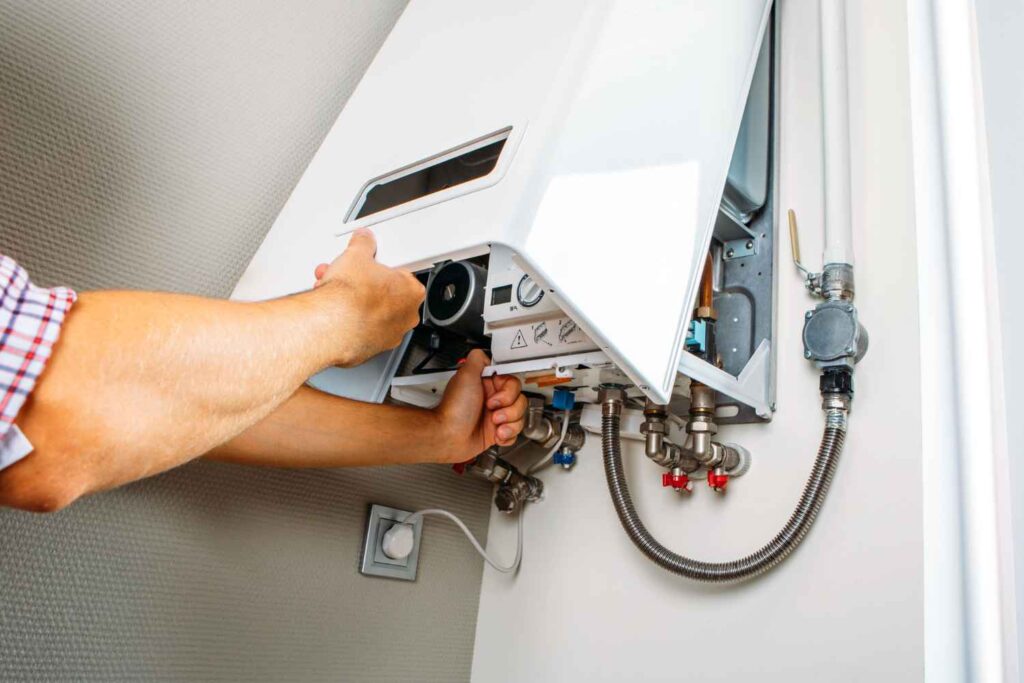
When the colder months approach, one of the most important steps homeowners can take is ensuring their heating system is ready to perform. For those who rely on oil boilers, regular servicing is not just about efficiency—it’s about safety, cost savings, and peace of mind. A question many people ask is: how early should you get your oil boiler serviced before winter?
Why Oil Boiler Servicing Is Essential
An oil boiler is the heart of your home’s heating system, supplying hot water and warmth during chilly months. Over time, however, soot, dirt, and deposits build up inside the unit, reducing efficiency and potentially causing breakdowns. Without proper Oil Boiler Service in Banbury, your boiler may use more fuel than necessary or fail when you need it most.
Regular servicing ensures:
- Maximum energy efficiency, saving money on heating bills.
- Extended lifespan of the boiler by reducing wear and tear.
- Safety checks to detect leaks, carbon monoxide risks, or faulty parts.
- Compliance with home insurance or landlord requirements.
The Ideal Time to Schedule Your Service
The best time to book an oil boiler service is late summer or early autumn, typically between August and October. By getting your boiler serviced before the colder weather sets in, you achieve several advantages:
Avoid the Winter Rush
Heating engineers are in high demand during the peak winter months. Waiting until the last minute means you may struggle to get an appointment, or you may end up paying higher call-out fees for urgent repairs.
Identify Issues Early
If your boiler has a hidden fault, discovering it before temperatures drop gives you time to repair or replace parts without being left in the cold.
Ensure Reliability
There is nothing worse than switching on your boiler in December only to find it’s not working. Servicing in advance provides confidence that your heating will run smoothly all season.
How Often Should Oil Boilers Be Serviced?
Industry experts recommend servicing oil boilers at least once every 12 months. An annual service is sufficient for most households, but if your boiler is older or frequently used, you may want to consider more frequent check-ups. Regular attention helps catch minor problems before they escalate into expensive breakdowns.
What Happens During a Boiler Service?
Understanding what an oil boiler service involves helps highlight why timing is important. During a standard service, an engineer will:
- Inspect and clean the burner, heat exchanger, and combustion chamber.
- Replace or clean filters and check the nozzle.
- Test the flue for safe emissions.
- Check seals, pipework, and connections for leaks.
- Assess efficiency levels and make necessary adjustments.
- Ensure the oil supply line and tank are in a safe condition.
Consequences of Delaying Service
If you wait until winter or skip servicing altogether, you risk several problems:
Breakdowns in Cold Weather:
Boilers are under maximum stress in winter, and any small fault can quickly cause failure.
Higher Fuel Bills:
A poorly maintained boiler burns more oil, driving up heating costs at the worst possible time.
Safety Risks:
Faulty boilers can leak carbon monoxide, a colourless, odourless gas that is extremely dangerous.
Shorter Lifespan:
Neglecting servicing shortens the overall life of your system, leading to earlier replacement expenses.
Planning for Winter Comfort
Book Early:
Contact an OFTEC-registered engineer in late summer before schedules fill up.
Check Your Oil Levels:
Combine servicing with topping up your oil tank to avoid shortages during peak demand.
Upgrade if Necessary:
If your boiler is very old and inefficient, use the service appointment to discuss potential upgrades with your engineer. Modern condensing boilers offer higher efficiency and lower emissions.
Keep Records:
Maintain a log of each service, as this is useful for warranties, insurance claims, and resale value if you decide to sell your home.
Signs You May Need Service Sooner
Sometimes, you may need to service your boiler earlier than the annual schedule. Warning signs include:
- Unusual noises like banging or whistling.
- Soot deposits or smoke around the boiler.
- A noticeable drop in heating efficiency.
- Strange smells or oil leaks near the unit.
- Water not heating properly or radiators staying cold.
If any of these occur, don’t wait until your usual servicing time. Arrange a professional inspection immediately.
Final Thoughts:
So, how early should you get your oil boiler serviced before winter? The smartest time is late summer to early autumn, ideally August or September. This timing ensures availability, prevents last-minute emergencies, and gives you the confidence that your heating system is reliable before the cold weather arrives.
By prioritising an annual Oil Boiler Service Milton Keynes, you safeguard your home’s comfort, your family’s safety, and your budget. Think of it as an investment—not only in your boiler but in the peace of mind that comes with knowing you’ll stay warm all winter long.


